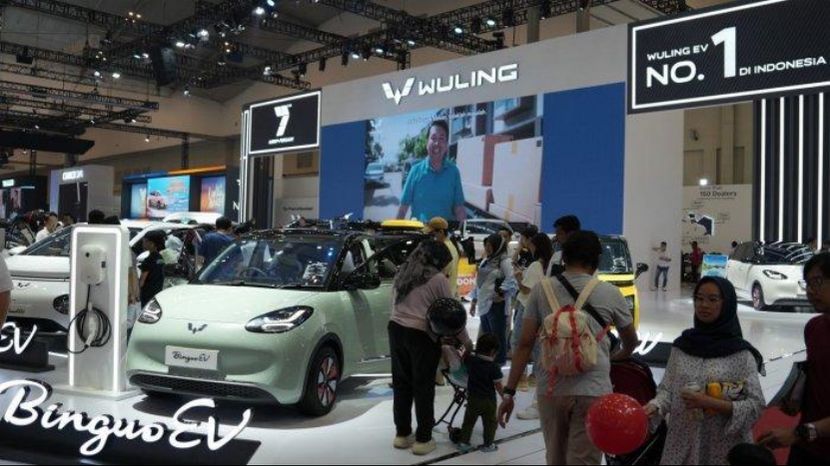Indonesia plans to ban fuel cars by 2045

The government plans to increase the use of electric vehicles at increasingly affordable prices, as opposed to fuel-burning vehicles (BBMs), which will be limited by the cessation of sales of these conventional cars.The Ministry of Maritime and Investment Coordination (Kemenko Marves) has said it is working on a ban on the sale of conventional vehicles based on internal combustion engines (ICE) that use gasoline.The Marves Coordinating Ministry's Deputy for Infrastructure and Transportation Coordination said the ban on the sale of gasoline vehicles will be part of efforts to accelerate the adoption of electric or pure electric vehicles (BEVs), and that they continue to work on developing a ban on the policy mechanisms for the sale of conventional vehicles. In this case.The government's goal is to have no new internal combustion engine vehicles sold on the domestic market by 2045.On the face of it, the plan to discontinue the sale of conventional cars is quite challenging, despite the fact that the remaining term of the policy is only 21 years, due to the fact that the majority of new cars sold in the Indonesian market are still powered by fossil fuels. Earlier, the Coordinating Minister for Economic Affairs revealed that the policy implemented by the government has been successful in attracting the interest of investors to participate in the development of electric vehicles. Advances in electric vehicle technology not only reflect global trends, but are also a key element in the transition to a green and sustainable economy. Electric vehicle (EV) technology is experiencing very rapid development, especially in terms of battery efficiency and charging networks. In the area of batteries, there are the latest innovations, such as sodium-ion technology, which is currently undergoing further research. To support investment in the EV industry, the government has introduced various incentives, including the elimination of import tariffs on imported four-wheeled electric vehicles (BEVs), a luxury sales tax concession for four-wheeled EVs (PPnBM), and an incentive program for electric motorcycles of Rp 7 million. This policy has proved effective, with data from Gaikindo showing rapid growth in EV sales in Indonesia.2024 Between January and July, EV sales reached 17,826 units, more than tripling from the previous year.
Several automakers claim that they will offer discount programs or significant discounts on pure electric vehicle (BEV) products through September. Wuling, Chery and Hyundai are all offering discounts on a number of their products. These include the Wuling Air EV, Wuling Binguo EV, Wuling Cloud EV, Omoda E5, and Hyundai Ioniq 5. Meanwhile, discounts offered range from Rp 15 million to Rp 60 million depending on the model. The first offer comes from Chery, whose first all-electric vehicle is also its flagship, the Omoda E5.The Omoda E5 starts at Rp419 million with a discount of Rp15 million. If the RZ (non-electric) Omoda 5 is purchased, the discount could be as high as Rp 40 million. The price cut is not too far from the Ioniq 5, one of the best-selling all-electric cars in Indonesia since its launch last year, with a discount of Rp 20 million, but the discount only applies to the Signature Long Range model class, as the Prime standard range is key. Significant discounts were given to three different ranges of electric vehicles under Wuling, namely the Air EV at Rp 56 million, the Binguo EV at Rp 33 to Rp 60 million, and the Cloud EV at Rp 38 million. Based on records, the delivery time for all Air EV models is now about one month due to the impending depletion of car stocks at dealerships.Binguo also depends on the model, with a discount of Rp 33 million for a long range of 333 kilometers, while the premium mileage of 410 kilometers is discounted from Rp 408 million to Rp 342 million (Rp 60 million).

